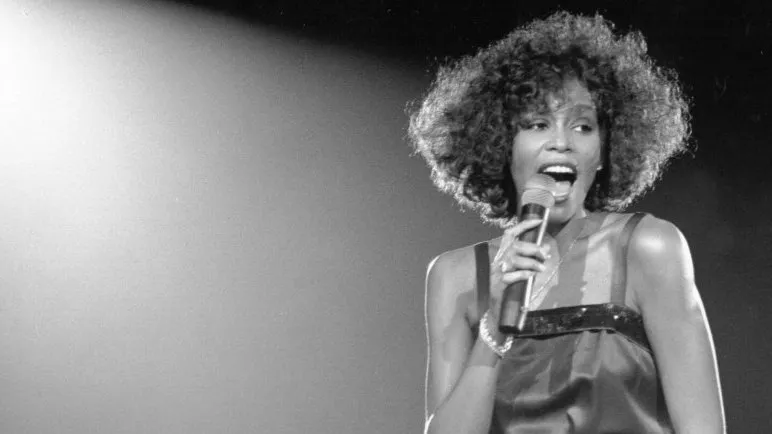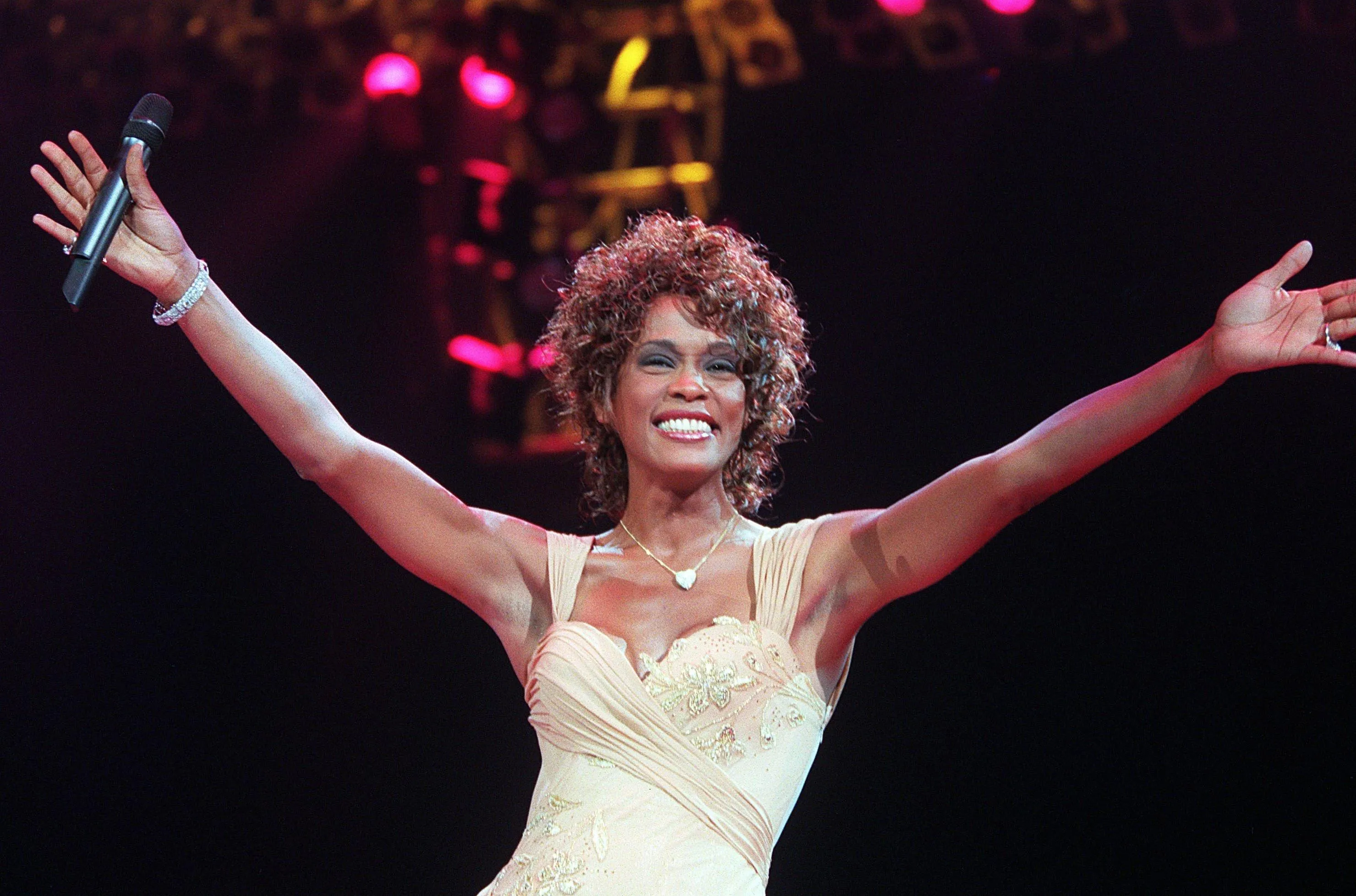Whitney Houston, often referred to simply as "The Voice," was a transformative figure in the music industry. Her exceptional vocal talent, combined with her crossover appeal, beauty, and grace, redefined what it meant to be a pop star. Houston not only dominated the charts but also broke barriers in a predominantly white pop industry, setting new standards for what a pop star could achieve. Her influence extended beyond music, affecting fashion, culture, and the very definition of what it means to be a global icon. This essay explores how Whitney Houston redefined the pop star and left an indelible mark on the world.

A Voice Unlike Any Other
Whitney Houston's voice was her most defining characteristic, earning her the nickname "The Voice." Her vocal range spanned three octaves, and she possessed a rare combination of power, control, and emotion that few artists could match. Houston's ability to convey deep emotion through her singing made her stand out from her peers. Whether she was belting out a powerful ballad or delivering a delicate, emotional performance, her voice had the ability to move audiences.
Houston’s vocal technique was rooted in the gospel tradition, which she grew up with as the daughter of gospel singer Cissy Houston. This foundation gave her voice a richness and soulfulness that resonated deeply with listeners. Her ability to blend the emotional intensity of gospel with the technical precision of pop singing allowed her to create a sound that was uniquely her own. This blend of styles enabled her to cross over into different musical genres, appealing to a broad audience and helping to redefine the pop music landscape.
Breaking Racial Barriers in Pop Music
In the 1980s, the music industry was still grappling with issues of race, and mainstream pop music was largely dominated by white artists. Whitney Houston broke through these barriers in a way that few Black artists had before. Her debut album, *Whitney Houston* (1985), was a commercial success, producing several hit singles and making her a household name. However, her success was not without its challenges.
Houston faced criticism from some in the Black community who felt that her music was "too white" and that she had abandoned her roots in favor of mainstream success. This criticism reflected the broader tension that many Black artists faced when trying to navigate the predominantly white pop industry. Despite this, Houston maintained her identity as a Black artist while also appealing to a global audience. Her success paved the way for future generations of Black artists to achieve mainstream success without having to compromise their identity.

Crossover Appeal and Global Icon Status
Whitney Houston's ability to appeal to a diverse audience was one of her greatest strengths. She was a true crossover artist, whose music resonated with listeners across racial, cultural, and geographical boundaries. Her 1987 album, *Whitney*, made history as the first album by a female artist to debut at number one on the Billboard 200 chart. This achievement was a testament to her broad appeal and her ability to connect with audiences on a global scale.
Houston's music videos also played a crucial role in her rise to global stardom. In the 1980s, MTV was a powerful force in shaping the careers of pop stars, and Houston’s videos, with their high production values and charismatic performances, helped to establish her as a visual as well as a vocal icon. Songs like "How Will I Know" and "I Wanna Dance with Somebody (Who Loves Me)" became instant hits, thanks in part to their vibrant, energetic videos that showcased Houston's talent and charisma.
Her success was not confined to the United States. Houston became a global phenomenon, with her albums topping charts in countries around the world. Her ability to connect with people from different cultures and backgrounds was a key factor in her enduring legacy as a pop icon.
Redefining Beauty and Fashion in Pop Culture
In addition to her musical talent, Whitney Houston also had a significant impact on fashion and beauty standards in the pop industry. Her elegant style, radiant smile, and graceful presence made her a fashion icon in her own right. At a time when Eurocentric beauty standards dominated the entertainment industry, Houston's success helped to challenge and expand the definition of beauty.
Her influence on fashion was evident in her music videos, red carpet appearances, and live performances. Houston often worked with top designers and stylists to create looks that were both glamorous and timeless. Her fashion choices, whether it was the iconic white dress she wore in the "Greatest Love of All" video or the casual chic of her 1991 Super Bowl performance, became trendsetting moments that were emulated by fans and fellow artists alike.
Houston's impact on beauty standards was also significant. As a Black woman who achieved global superstardom, she helped to normalize and celebrate Black beauty in a way that had rarely been seen in the mainstream music industry. Her success opened doors for future generations of Black female artists, who could now aspire to the same level of visibility and recognition.

The Soundtrack of a Generation
Whitney Houston's music became the soundtrack of a generation, with her songs serving as the backdrop to countless personal and cultural moments. Her 1992 cover of Dolly Parton’s "I Will Always Love You," featured in the film *The Bodyguard*, became one of the best-selling singles of all time and solidified her status as a pop legend. The song's success was a reflection of Houston's ability to take a song and make it her own, infusing it with her unique vocal style and emotional depth.
*The Bodyguard* soundtrack, which became the best-selling soundtrack of all time, showcased Houston's versatility as an artist. The album featured a mix of ballads and up-tempo tracks, all of which highlighted her vocal prowess. Songs like "I'm Every Woman" and "Run to You" became anthems for empowerment and love, resonating with audiences worldwide.
Houston's influence extended beyond her own music. She was also a mentor and inspiration to many artists who came after her. Her ability to convey deep emotion through her singing, combined with her technical skill, set a new standard for what it meant to be a pop singer. Artists like Mariah Carey, Beyoncé, and Jennifer Hudson have all cited Houston as a major influence on their careers, and her impact can still be felt in the music of today's top artists.

Enduring Legacy and Cultural Impact
Whitney Houston's legacy is not just defined by her music but also by the cultural impact she had during her lifetime. She was one of the first Black women to achieve global superstardom in a way that transcended racial boundaries. Her success helped to break down barriers in the music industry and set new standards for what a pop star could achieve.
Houston's influence can be seen in the many awards and honors she received throughout her career, including multiple Grammy Awards, American Music Awards, and Billboard Music Awards. She was also inducted into the Rock and Roll Hall of Fame in 2020, a recognition of her lasting impact on the music industry.
Her influence extended beyond music and into the broader cultural landscape. Houston was a trailblazer who opened doors for future generations of artists, particularly Black women, to achieve success in the mainstream music industry. Her legacy is one of empowerment, resilience, and the celebration of Black excellence.
Conclusion
Whitney Houston redefined the pop star by breaking racial barriers, setting new standards for vocal performance, and becoming a global icon. Her influence extended beyond music, affecting fashion, beauty, and cultural norms. Houston's legacy as "The Voice" is a testament to her extraordinary talent and the lasting impact she had on the world. She remains an inspiration to artists and fans alike, and her music continues to resonate with audiences across the globe. Whitney Houston was not just a pop star; she was a cultural phenomenon who changed the music industry forever.


-1724053214-q80.webp)
